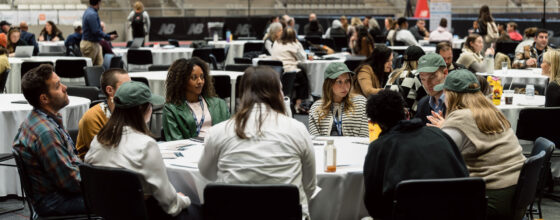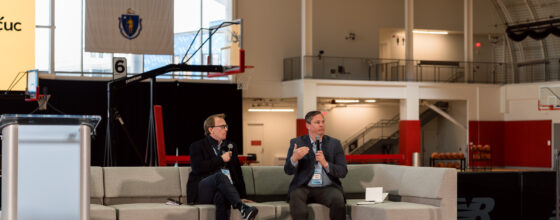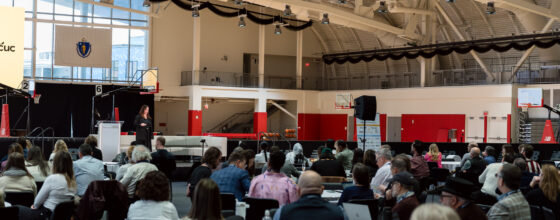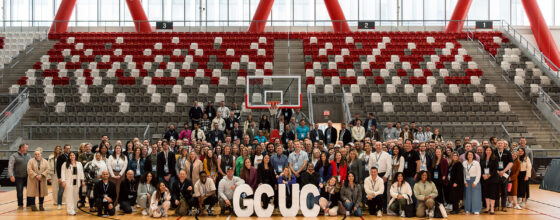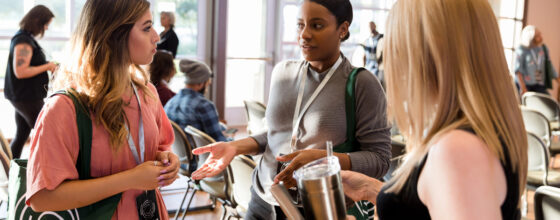GCUC Podcast Recap: David Edmunds of Salt Mine

How Salt Mine Blends Hospitality, Community, and Real Estate to Create Coworking Success
In a recent GCUC Podcast episode, Liz Elam sat down with David Edmunds, founder of Salt Mine, to dive into the key ingredients for building a successful coworking space. Salt Mine, based in Utah, stands out not just for its stunning transformation from a bowling alley into a modern coworking hub, but for its unique approach to blending hospitality and community in a real estate-driven environment.
The Importance of Hospitality in Coworking
One of the core takeaways from David’s conversation with Liz was the central role of hospitality in coworking. He defines hospitality as a “love for strangers” and believes that a welcoming, people-first approach sets the tone for a coworking space. At Salt Mine, this ethos is felt from the moment someone walks through the doors, with a coffee shop-style environment designed to spark interaction and connection. Hospitality is not just a service element; it is the foundation for fostering a sense of community.
David emphasizes that good hospitality can’t happen without the right people. Hiring passionate staff who genuinely care about the well-being of the community is essential. It’s not about the number of employees, but about having the right team to create meaningful interactions with members.
Strategic Partnerships and Community Building
Salt Mine’s success didn’t come solely from great design or customer service—it’s also deeply rooted in community partnerships. From the beginning, David sought out collaborations with local organizations like Silicon Slopes and South Valley Chamber to bring Utah’s tech industry into the fold. These partnerships helped position Salt Mine as a community hub for entrepreneurs, offering not just a workspace but a platform for networking, innovation, and growth.
By hosting events, from casual barbecues to formal tech talks, Salt Mine became a go-to destination for tech professionals and beyond. The space provided a much-needed alternative to traditional office spaces, offering flexibility, community, and a more creative environment for people to gather and collaborate.
Navigating Post-Pandemic Challenges
David and Liz also discussed how the coworking industry has evolved post-pandemic, with hybrid work models taking hold across many industries. As companies reduce their real estate footprints, they still need spaces to gather their teams for collaborative events or regular meetups. Salt Mine has leveraged its flexible space to cater to these needs, hosting everything from large corporate events to small team meetings.
Salt Mine’s ability to adapt to changing market needs highlights the importance of flexibility in coworking spaces today. As David pointed out, providing an inspiring and functional space for people to connect—without the sterile, impersonal feel of traditional hotels or office buildings—has become a competitive edge.
Lessons for Coworking Operators
David’s journey with Salt Mine offers valuable lessons for coworking operators. From his deep understanding of hospitality to building strategic partnerships, he underscores the need for coworking spaces to go beyond just providing desks and Wi-Fi. It’s about creating a place where people feel valued, engaged, and connected—not only to the space but to the broader community.
If you’re a coworking operator looking to enhance your space’s offering, David’s insights provide a roadmap for success. Focus on hospitality, cultivate strong partnerships, and design your space to serve as more than just an office—it should be a vibrant, community-driven hub.
Final Thoughts
Saltmine is a shining example of how coworking spaces can thrive by blending hospitality, real estate strategy, and community building. As more businesses embrace hybrid work, coworking spaces that prioritize human connection and flexibility will be well-positioned for continued growth.


